Literarily Speaking: 40 years of Masoom (1983) – a little boy and a secret that fractures a happy family
Shekhar Kapur’s heartwarming movie is the best-known Indian adaptation of Erich Segal’s Man, Woman and Child
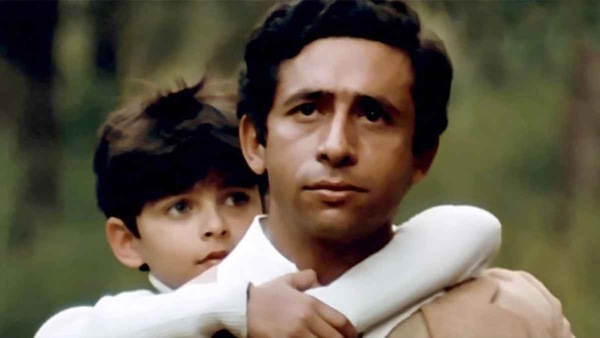
Last Updated: 03.28 PM, Sep 27, 2023
In our new column, Literarily Speaking, we recommend specially-curated book-to-film adaptations that will leave you spell-bound
In Erich Segal’s novel, a phone call irrevocably alters the life of Robert Beckwith, his wife, Sheila and their daughters, Jessica and Paula. Unbeknownst to Robert, Nicole, a woman he had a one-stand with in Paris, has been raising their 9-year-old illegitimate son called Jean-Claude. Nicole has since died, and Jean-Claude is orphaned, with no idea who his father is.
While Sheila is heartbroken to learn that her devoted husband has cheated on her, Nicole’s death places Robert in a difficult position. With Sheila’s reluctant consent, he gets Jean-Claude over for a short visit. Jean-Claude is an adorable well-behaved child who wins the hearts of Jessica and Paula. Robert is torn between admitting his relationship to Jean-Claude, and disrupting the stability of his family.
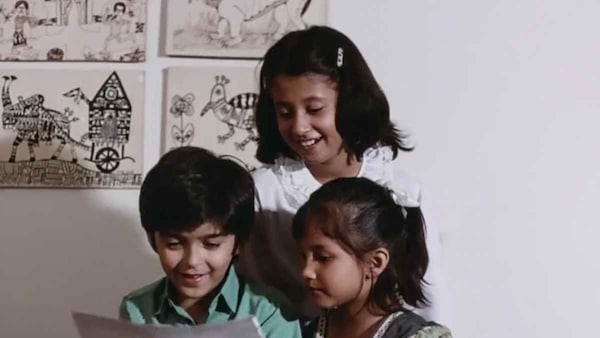
The daughters eventually discover the secret of Jean-Claude’s illegitimacy and refuse to speak to Robert or the boy. Meanwhile, Sheila learns first-hand that infidelity can be a series of small choices, rather than one big move. Eventually, although Sheila, Jessica and Paula join Robert in urging Jean-Claude to live with them, he leaves for a residential school in France to fulfil his mother’s wish.
Erich Segal and David Zelag Goodman wrote the screenplay for Dick Richards’ 1983 movie adaptation of the same name featuring Martin Sheen as Robert and Blythe Danner as Sheila. But as Indian adaptations go, Shekhar Kapur’s Masoom (1983), remains the best-known one, although it wasn't the first.
Masoom (1983)
Early in the movie, we get an inkling of Indu Malhotra(Shabana Azmi)’s fierce protectiveness of the home she has carefully built with her architect husband, DK (Naseeruddin Shah). When their daughters Pinky (Urmila Matondkar) and Mini (Aradhana) sneak a puppy into the house, Indu can’t tolerate the sight of the puppy and ensures that it is returned.
DK gets a call from his old school headmaster in Nainital, conveying that he has an illegitimate son by Bhavna (Supriya Pathak), a schoolmate he met at a reunion. With Bhavna’s death, the fate of their 9-year-old son, Rahul (Jugal Hansraj), hangs in the balance. DK is shaken by this news, but he immediately confesses to Indu about his one-night stand with Bhavna, and about Rahul who is unaware that DK is his father. Indu’s world falls apart like a house of cards.
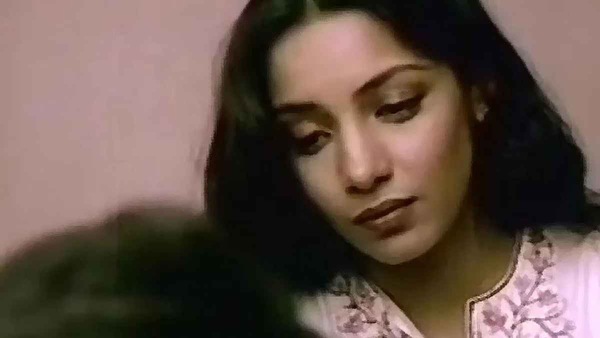
When DK brings Rahul home as a temporary measure, the girls, unaware of the dynamics at play, quickly adapt to having another child in the house. Indu alone remains immune to Rahul’s innocence and charm. On his friend Suri’s (Saeed Jaffrey) advice, DK takes Rahul for an admission interview to a boarding school in Nainital, and it is here that they bond, much like a father and son.
On their return, Rahul is shocked to see a document that mentions DK as his father. Later that evening when Rahul goes missing, DK is beside himself with worry, searching for Rahul. Rahul is brought home by a policeman who found him, and Indu finally erupts with equal parts relief and anger. When Rahul admits to her about knowing that DK is his father, Indu understands the burden of abandonment the boy carries, of having discovered the identity of his father from a mere document.
The next day, DK takes Rahul to the railway station to board the train to Nainital, where he would study. DK is reluctant to let Rahul go, but the boy assures him that he will be alright. As Indu accompanies the girls to school by taxi, she realises that the boy whom she regards as a constant reminder of her husband’s infidelity is the innocent victim of circumstances beyond his control. Will Indu overcome DK’s betrayal of her trust and bring up Rahul as a child who deserves a family? Or will Rahul go away to Nainital, secure in the knowledge that he finally knows who his father is?
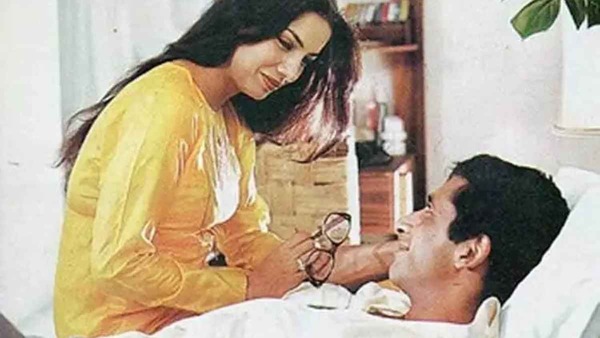
Gulzar’s screenplay depicts DK as an upwardly mobile professional who loves his wife and dotes on his daughters. However, there has been, all along, the secret wish for a son that remains unfulfilled until Rahul walks into his life. Indu is a strict parent and a loving spouse, who wavers between salvaging her married life, contending with nurturing emotions for an illegitimate child, and walking away from it all, much like her uncompromising friend Chanda (Tanuja).
Visually, Masoom is striking in its composition of frames by Pravin Bhatt, especially with the stairways and doorways in the Malhotra residence that represent the conflicts and undercurrents between characters. R.D. Burman’s songs for Gulzar’s lyrics are signposts in the narrative – Huzur Is kadar (a light-hearted ghazal by Suri and DK before DK learns of Rahul's existence), Do naina (a lullaby by Indu that reminds Rahul of his mother, Bhavna), Lakdi ki kathi (a playful nonsense verse by the Pinky, Mini and Rahul) and two versions of Tujhse naaraaz nahin (when DK and Indu individually grapple with their vulnerability, and wistfulness for an earlier blithe self).
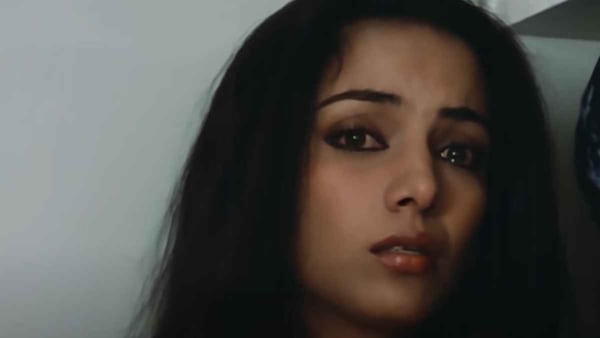
Balu Mahendra’s Malayalam movie, Olangal (1982) was the first Indian adaptation of Erich Segal’s novel, made a year before Masoom. Unlike the story in the novel, Ravi (Amol Palekar) lies to Radha (Poornima Jayaram nee Bagyaraj) that Raju is the son of a friend who passed away recently. Olangal featured music by Ilaiyaraaja, and the song, Thumbi Vaa became popular in its Malayalam original and its many language versions, even featuring in a movie as recent as R. Balki’s Paa. Unfortunately, Olangal is not available for online streaming although songs and excerpts are available.
Five years after Masoom was released, in V. Azhagappan’s Tamil movie, Poo Poova Poothirukku (1987), Ramu (Prabhu), married to Janaki (Saritha), has also been in a relationship with Mary (Amala) for years, evidenced by his trips to the Andaman Islands where she lives. When Mary dies, Ramu discovers that she has not told their son, Kannan, that he is the father. (Confusingly, there is a family portrait of Ramu with Mary and Kannan!). Much like in Olangal, Ramu lies to Janaki about Kannan being his dead friend’s son. Initially, Ramu and Janaki are depicted as a progressive couple who don’t adhere to long-standing beliefs about gender roles. She drives a car, and he dries her hair after the weekly ritual hair wash. However, in the end, Janaki forgives Ramu and takes Kannan in, partially because of her desire for a son (as a crutch in their old age when their daughters will be married and have their own families to contend with).
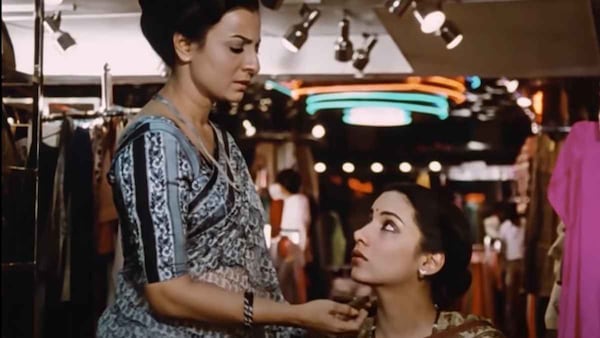
In Deepak Sareen’s Hindi movie, Jab Pyaar Kisise Hota hai (1998), Sooraj Dhanrajgir (Salman Khan) falls in love with Komal (Twinkle Khanna) who develops trust issues in their relationship. Sooraj discovers Kabir (Aditya Narayan), his son by Pooja (Namrata Shirodkar) with whom he once had an affair. Sooraj is caught in a web of lies he weaves to keep this a secret from Komal whom he is to marry. Unlike the novel and the many adaptations, there is no infidelity here, and the boy is the consequence of an earlier relationship. The boy is aware of Sooraj being his father, but Sooraj lies to his loved ones about the boy being a friend's son.
At the heart of each of these adaptations is the illegitimate child, and a marriage (or present relationship) under threat. Excluding the Tamil movie, in all other adaptations, the father is unaware of the existence of an illegitimate son because the information is withheld by the mother who has braved society and had a child out of wedlock. There is also the wronged wife, who has the difficult predicament of accepting that there was another woman in her husband’s life, but also having to deal with the boy who is a constant reminder of it.
In Masoom, the focus clearly stays on the victims of the infidelity. Although DK’s anguish is real, the movie is primarily about Indu who is devastated that her perfect marriage with DK was built on a secret, and about the motherless Rahul, who is an innocent consequence of DK and Bhavna’s one-night stand.
You can watch Masoom here.
(Views expressed in this piece are those of the author, and do not necessarily represent those of OTTplay) (Written by Saritha Rao Rayachoti)

